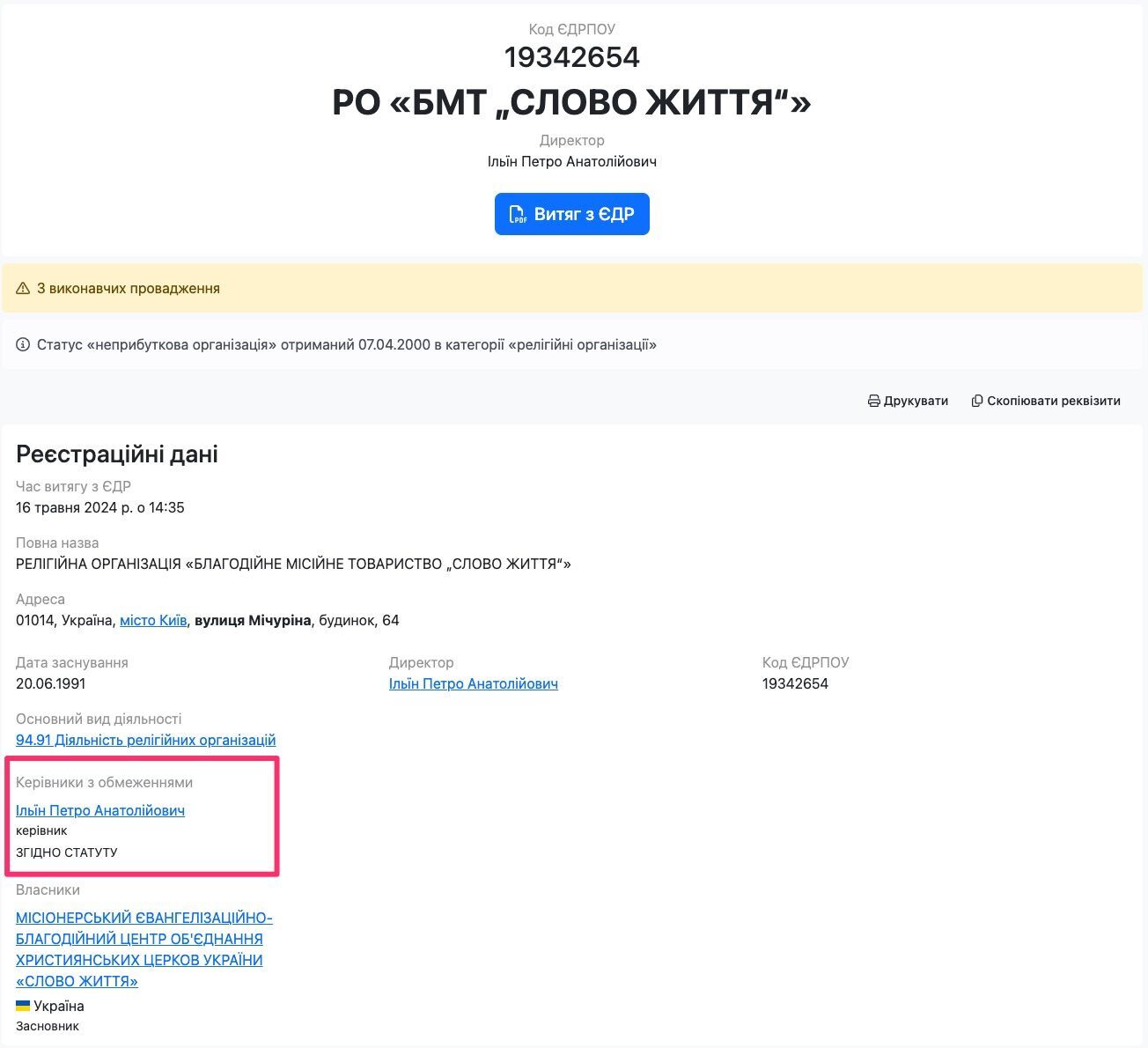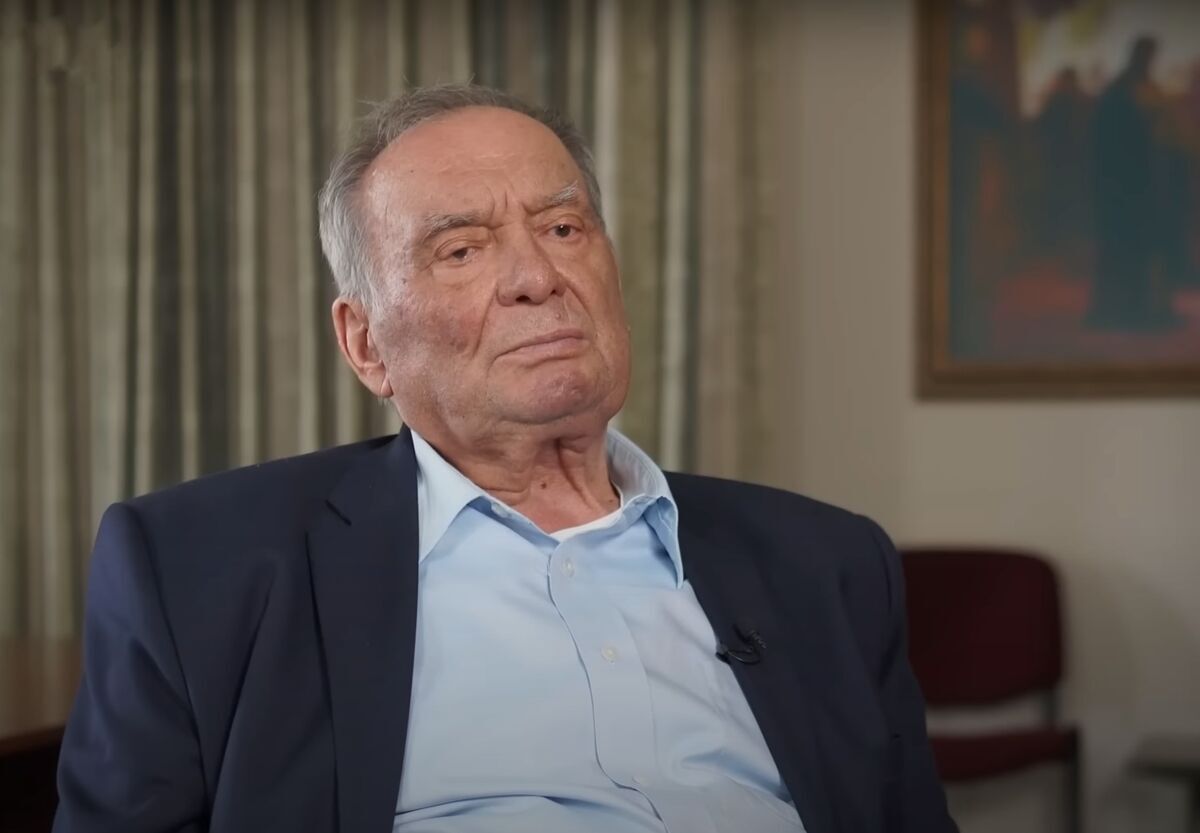На столичном Печерске седьмой год продолжается резонансный конфликт за ценные церковные земли: причины и течение процесса
В столичном центре, на Печерске седьмой год продолжается громкий конфликт за ценные церковные земли. Бывший пастор Владимир Кунец обвиняет действующее правление Религиозной организации «Благотворительное миссионерское общество «Слово жизни» в несанкционированном сносе аварийных сооружений, находящихся в собственности общества.
Зато другая сторона конфликта утверждает: господин Кунец не имеет никакого юридического отношения к объекту, больше был отлучен от религиозной организации из-за злоупотреблений церковными финансами и имуществом, а также – за публичные провокации против Всеукраинского Союза церквей Евангельских христиан-баптистов.
Итак, в чем состоят причины скандала, ныне продолжающегося как в публичной, так и в судебной плоскости? Кому действительно принадлежит церковное имущество и земля стоимостью в десятки тысяч долларов в престижном Печерском районе Киева?
СтопКор тщательно изучил материалы дела, которые есть в открытом доступе, и пообщался со всеми конфликтующими сторонами, чтобы разобраться в ситуации.
Итак, ретроспектива
Земля и имущество, ставшие «яблоком раздора» между «командой» бывшего пастора и действующим правлением религиозной организации, расположенной на ул. Ломаковская, 64 (бывшая Мичурина, 64). Это местность в самом сердце Киева, неподалеку от музейного комплекса «Родина-мать «, из которой открываются красивые виды на Днепр и которую киевляне прозвали «Царским селом».

Рядом с этим адресом находится украшение столицы, монументальное церковное сооружение евангельских христиан-баптистов, связываемое в народе с наиболее известным его прихожанином Александром Турчиновым. На ее строительство с 1992 года по 2013 год жертвовали собственные средства баптисты со всей страны, политики и бизнесмены, а также прихожане религиозной организации «БМТ «Слово жизни», которую тогда возглавлял Владимир Кунец.
До 2009 года Кунец непосредственно возглавлял строительство, которое вместе с пожертвованиями вверили ему прихожане. Используя репутацию пастора-христианина и беспрекословное доверие баптистов, Владимир Кунец никому не отчитывался. Но время расставило все на свое место: средства выделялись, а строительство так и не двигалось с места. Изнуренные обещаниями и отсутствием какого-либо результата верующие значительно сократили пожертвования на строительство и предложили привлечь сертифицированную строительную компанию.
Более того, Иван Куровский, строитель и меценат, был готов завершить строительство храма в качестве благотворительности. Но, вероятно, предусматривая потерю контроля за средствами, Владимир Кунец объявил пастве, что за проект строительства от Куровского «мы не молились, а молились о том, что есть». Иными словами, категорически отказал приобщать профессиональных строителей к выполнению работ, в частности, и на благотворительных началах.
Но доверие баптистов к Кунцу было подорвано, поэтому прихожане принципиально отказались бесконтрольно финансировать строительство. Кунец осознал, что потерял доверие верующих, а с ним – и дальнейшее финансирование храма. Тогда он обратился к руководству евангельских христиан-баптистов с инициативой передать долгострой в собственность Союза для завершения строительства и покрытия огромных долгов.

ВСЦ ЕХБ не сразу согласилось на такое предложение, учитывая колоссальный объем финансов, необходимых для завершения храмового комплекса. Но необходимость достроить храм, который станет сердцем для христиан-баптистов в столице, мотивировала ВСЦ ЕХБ поддержать эту инициативу. В 2014 году религиозная община во главе с Владимиром Яковлевичем Кунцем добровольно передает недострой Союза ЕХБ.
Сам Владимир Яковлевич остался на территории рядом с храмом, именно на Ломаковской, 64. И с того момента ВСЦ ЕХБ направил все усилия на достройку храма, наконец-то свершившегося в 2018 г.. Но в 2017 году, накануне ввода в эксплуатацию Храма Мира Любви и Единства Христиан Кунец решил забрать уже почти достроенную церковь назад. Конечно, руководство ВСЦ ЕХБ на его предложение не согласилось. С этого времени и произошел «раскол» между Кунцем и Союзом ЕХБ.
Как развивался конфликт?
Как отмечалось, Кунец после передачи недостроя осел совсем рядом с храмом в здании, принадлежавшем религиозной общине «Слово жизни» и продолжал собирать деньги с верующих.
Претендуя на то, чтобы забрать у Всеукраинского союза церквей ЕХБ храмовый комплекс, Кунец начинает атаковать письмами правоохранительные органы и даже офис президента. В его обращениях говорится о якобы рейдерском захвате храма и силовом давлении на него, за которым, по его мнению, стоит руководство ЕХБ вместе с известным украинским политиком-баптистом Александром Турчиновым. Кунец надеялся, что привлекая фамилию оппозиционера, заставит власть вмешаться в это дело, нарушая закон.
Это не подействовало. Тогда Кунец начинает унижать и шельмовать руководство ЕХБ через медиа, рассчитывая, что привыкшие решать все мирно баптисты во избежание скандала вернут ему храмовый комплекс. Но руководство ЕХБ через суды отстояло свою позицию и за недостойное поведение и финансовые злоупотребления лишило Кунца пасторского сана и отлучило от церкви.
После этого решения религиозная организация «Слово жизни» на общем собрании снимает Кунца с должности руководителя организации, избрав своим руководителем Петра Ильина.

Новое руководство религиозной организации не только так и не получило от Кунца финансовый отчет, но и выяснило, что он ограбил религиозную общину. Так, землю, расположенную рядом с храмом и принадлежащее общине имущество, Кунец переоформил на сына, дочь и внука.
После многолетних судебных заседаний религиозная община смогла правовым способом вернуть похищенные землю и имущество.
Кунец не признал судебные решения и продолжил борьбу за присвоение земли и имущества.
В многочисленные инстанции и средствам массовой информации продолжают поступать письма от его имени о рейдерстве, демонтаже незаконно построенных сооружений и нарушении прав верующих.
Чтобы не рассказывать в этих обращениях и письмах о том, что земля и имущество были украдены у религиозной общины, он избрал на роль рейдера баптиста-бизнесмена Александра Дубового, который в свое время многое сделал для строительства Храма и живет рядом с зоной конфликта. Потому что «жестокий рейдер-бизнесмен отбирает последнее у скромного пастора и его семьи» — выглядит достаточно правдоподобно и вызывает сочувствие.
В свою очередь, действующий президент БМТ РО «Слово Жизни» Петр Ильин озвучивает версию событий, опровергающую все обвинения со стороны Кунца.
Он ссылается на вердикт суда, согласно которому у бывшего пастора нет никаких легитимных оснований претендовать на имущество по ул. Ломаковской, 64 и решение церковного собрания об увольнении Кунца через финансовые махинации.

«Мошенничество Кунца было разоблачено еще в 2020 году верующими церкви. Имущество, по праву принадлежавшее БМТ «РО «Слово жизни», было присвоено Кунцем и его семьей. В судебном порядке установлено, что Кунец и его семья к БМТ «РО «Слово жизни», а также к имуществу нашей организации не имеют отношения. Но, вероятно, Кунцу в буквальном смысле на законы Украины безразлично. Мало того, что он с семьей разработал незаконную схему по присвоению недвижимости религиозной организации, так он еще и саботирует решение суда, провоцируя прихожан», – рассказывает Ильин.
Руководитель религиозной организации также указывает на злоупотребление гуманитарной помощью с предоставленной церкви.
«Беспорядочное состояние на территории «Слово жизни», к которому привел Кунец своей небрежностью и безразличием, поразил всех. Было огромное хранилище гуманитарной помощи, которая сейчас прогнила и непригодна. годами?Мы действительно вынуждены привлекать охранников, чтобы удерживать порядок через провокации Кунца на территории и проводить христианские служения в мире и покое», – подчеркнул он.
У Владимира Кунца нет правовых доказательств своей позиции, кроме эмоций и обид. Один из главных его аргументов – это поддержка известного церковного деятеля Григория Коменданта.
Есть даже информация, что Кунец с Комендантом с помощью админресурса хотели создать отдельный религиозный Союз, расколов ВСЕХБ. Но во властных коридорах этим проектом не заинтересовались.
Нам стало интересно, кто такой Григорий Комендант и чем он известен.
Григорий Комендант – глава Библейского общества, до обретения Украиной независимости возглавлял Союз ЕХБ всего Советского Союза. Окончил Московские заочные библейские курсы – единственное протестантское заведение СССР. В 1994-2006 годах возглавлял Всеукраинский Союз Объединений Евангельских Христиан-Баптистов. В 2001-2003 годах являлся президентом Европейской Баптистской Федерации, а в июне 2007 года избран президентом Украинского библейского общества (УБТ). Григорий Иванович всегда поддерживал тех, кто был у власти, оставаясь на руководящих должностях.

Как утверждают источники, в советский период он якобы был завербован КГБ (правопреемницей этой организации позже стала российская ФСБ) и как агент даже имел позывной «Быстрый».
Мы также обратились к самому Григорию Коменданту за комментарием по этой истории. Он подтвердил, что действительно поддерживал Владимира Кунца при строительстве церкви и даже лично в ней работал. В то же время Григорий отрицает, что был завербован КГБ.
«Меня не завербовали. Они вербовали, хотели. Но у меня были встречи с их главным и сказал, что я ни в коем случае не могу сотрудничать. Ни здесь, ни в Москве, когда я там работал. Да, подходили, очень хотели, присматривали за мной, но насчет сотрудничества – абсолютно такого не было», – заявил он.
Комендант также утверждает, что пока не поддерживает прямые связи со страной-агрессором, хотя и имеет определенную опосредованную «поддержку» от тамошних единоверцев.
Я не могу сейчас поддерживать связи, потому что россия и, к сожалению, наше братство там не совсем занимают ведущие позиции. Поэтому я никаких связей не поддерживаю. Я поддерживаю отношения с Европой, Азией. Я был президентом организации в Евразии, куда все страны входят. Я был вице-президентом Всемирного союза баптистов. Там у меня есть поддержка из россии. Напрямую – никакой», – комментирует он.
Журналисты все же глубже заинтересовались персоной Григория Коменданта, и вскоре найдут ответ, действительно ли во времена гонения на христиан в СССР он сыграл свою роль в управлении карательными процессами. Иными словами, есть информация, что именно Григорий Комендант давал указания и подсказки КГБ, кого из неугодных христиан отправить за решетку.
Финальную точку в этом противостоянии, объективно рассмотрев все факты, поставила Фемида. А мы, в свою очередь, не можем судить кто и как проживает свою жизнь – достойно или нет. Но рано или поздно для всех приходит время пожинать плоды своих действий и отвечать за поступки…


